This is Part One of a two-part email exchange between
Myq Kaplan and myself. (Thanks to
Gladwell-Simmons for the inspiration.)
RubyI'll start with this: You've mentioned Stanhope is your favorite comic out there. This seems curious to me since you have such a different style than him. Why do you love him so much? Do you see your comedy evolving in a more Stanhope-ian (or other) direction in the future? Do you think consciously about big picture "what is my voice?" stuff like that or just take it one joke at a time?
KaplanStanhope is indeed one of my favorites to watch and listen to. To start with, I have a difficult time saying he is number one above all others, because there are so many amazing folks out there that make it difficult to compare. Though that's the great thing about comedy, is that everyone who is great at it is great in their own way, from Stanhope to Paul F. Tompkins to Reggie Watts to Ellen DeGeneres to Steven Wright to Brian Regan to Louis CK to Sarah Silverman to Andy Kindler to Dave Chappelle to everyone else, etc. And it doesn't have to be a competition. Unless it's televised and there's prize money.
It is true that many of the comics I love do something different than I do, stylistically. But certainly, what I love about Stanhope is his content. As a human being, I care about a lot of the things that he talks about, topics like overpopulation and discrimination and the various ills facing the inhabitants of this planet (and maybe the universe if we someday screw up even bigger than ever). Additionally, the angles that he takes on these issues are usually different than 99% of the typical perspectives you hear argued out there. E.g. his take on whether there should or should not be gay marriage: there should be NO marriage, period. Things like that. A lot of people throw the word "genius" around where it might not belong, and who am I to not be like a lot of people? Great numbers of people think a like, right? Point is, he's a genius at what he does (and I'm a genius at genius-spotting). He's also super-prolific, which I love, and very hard on himself, which I don't think is necessary, but certainly serves to serve his being prolific, thus avoiding being complacent and constantly moving forward creatively. Or at least moving sideways, but at such a level that who cares which way he's moving, it's just wonderful to take in.
I don't think it would make sense to only enjoy people that are similar to yourself. If I only listened to Mitch Hedberg and Emo Philips and Demetri Martin and Brian Kiley and Steven Wright and other wonderful jokesmiths, I'd have a lovely time but would certainly be missing out on the wealth and range of comedy options out there. If you're only enjoying folks similar to yourself, then who would watch Reggie Watts?
That said, with respect to the question of my comedy vs. Stanhope's, I do also currently aim to address the woes of the world in my way. I don't do it exclusively, but I discuss social issues that I care about like homophobia, racism, sexism, animal cruelty, etc., amongst the logic play, the word tricks, the silliness, the jokes about comic books, movies, and whatever else I'm talking about at the moment.
I certainly imagine my comedy will continue to evolve, though I don't feel as though I need to be the architect of that evolution. Seinfeld said in "Comedian," I believe, something like (paraphrasing) "if you ask any comedian where he gets his joke ideas, and he can tell you, he's lying," that we all have our muses, our selves, our voices, our personas, that develop without necessary any conscious guidance. And that really makes sense to me. After all, would you ever say, "Steven Wright, I've enjoyed everything you've ever done, but could you tell us what's REALLY inside of you? What REALLY happened when you spilled spot remover on that dog?" I mean, he seems like a very interesting dude, but if he never evolves towards being a more confessional comic, I don't think it would be reasonable to slight him for it. He is a brilliant artist with the palette he has chosen, or that has chosen him, even.
And what about some of the great comics who HAVE undergone a drastic shift of style over the years? Paul F. Tompkins is one of my favorite, and I thoroughly enjoy both "Impersonal" AND the more personal stuff he's doing today. Same with Louis CK's absurdity of the past and his laser-like truth-gun of hilarity today. (For the record, I have a friend who prefers CK's absurdist past to his honest, everyman present, on the grounds that his previous absurdism was just as honest, because that was who he was, truly.)
This might be getting a bit far afield of your original question, so to get back to it—I imagine there are ways in which I'll never be like Stanhope, and there are ways in which I'll always be myself. Though the self is an ever-changing, ever-evolving being, and as my comedy today is certainly different than it was five years ago, I presume/hope/imagine that it will be somewhat different five/ten/fifteen years from now as well.
As to whether I have big picture goals and aspirations about my voice and the comedian I'll be, I think it makes sense to say that on a theoretical level, yes, but on a practical level, one joke/idea/riff/story/thought at a time is how it works. I read
a quote about how analyzing oneself is like trying to bite one's own teeth, so while it can be a good philosophical exercise, ultimately the only thing you can do is do, or be (so, two things).
The only real conscious decision-making portion of it all might be figuring out which jokes go into a TV set, a special, a CD, a headlining set, etc. This is something that everyone faces eventually. When you start out and you only have 5 minutes of material, there is no question of which 5 minutes you share; you share everything. But eventually, choices need to be made. And on what grounds? Do the funniest stuff only? Or do stuff that goes together thematically? Stuff that says something about a particular topic that means something to you? Stuff that is more personal? Stuff that is just fun for you to do? Or stuff that audiences consistently love the most?
Ideally, it would be wonderful if all of those things were the same. But even for the best, it might not be that way. Louis CK has talked about throwing out chunks that kill because they don't fit in with everything else he wants to do. That's impressive and amazing to hear. Right now, I'm just working and writing and heading towards the next hour to record, at which point I may have to decide on how to whittle down more than an hour's worth of material that I'm happy with. Maybe I'll pick the stuff that's most meaningful even if it didn't get the most laughs (is that Stanhope-ian?), or maybe I'll pick the stuff that tickles me the most, even if it's not the most socially relevant (is that Stanhope-ian?). Or maybe some producer or editor will pick, even though they told me I would be involved in the process (that is definitely less Stanhope-ian, and I hope to evolve away from that as much as possible, for sure).
RubyIt's interesting. So many comics seem to be searching for their "voice" and yet the act of looking for it is seemingly a waste of time if it's something you can't really consciously decide upon. Like you say, the only thing you can do is be.
(Before I go further, let me acknowledge that while you're doing spots on the Tonight Show, etc., I'm still scraping by for gigs and doing mics. I don't want people to think I'm considering us on equal footing. Ok, caveat = taken care of.)
Lately I've been feeling that finding your voice is really more about eliminating things than finding them. Like you need to say: Yes, this is something I could talk about onstage and probably get a laugh from. But that is pulling me away from who I want to be and how I want the audience to see me. In that way, what you say no to feels like the key.
For a long time, I felt a sense of desperation to get laughs however possible. Only recently have I considered that maybe laughs aren't the most important thing...well, that's not right....more that there is a quality to laughs. You can get big laughs with a dick joke or mocking Sarah Palin but it is not equal to getting medium laughs with something that is actually personally revealing. The idea of taking emotional risks onstage, as I've heard Marc Maron describe it. That even if something doesn't get a huge laugh but it does show you out there being vulnerable and revealing yourself, it is worth more than something silly that does get an audience going. It's something they might actually think about a few days later after they've forgotten other stuff. And it's a way for them to remember you as a person instead of just a mask spouting off a collection of jokes.
Also, I've got a new bit I'm working on where I worked in a reverse way than I usually do. Usually I'm out there hunting for funny things and then testing it on an audience for confirmation laughs. But this new thing (about a family conversation I had) started with me going onstage and just telling a story. I felt engaged with the audience in a different way than usual. It wasn't funny that first time I did it, but I knew that it was something to stick with. (And people came up to me and told me so afterwards, which is rare for a bit that isn't really working yet.) So I've been doing it for the past few weeks and trying to force it into something funny. It's getting there but still needs some polishing, especially at the ending. But it's been interesting to start with a topic and then figure out what's funny about it instead of starting with something funny and then figuring out how to expand it.
Btw, back to the voice thing. Do you think you've found your voice? When I think about your comedy in this way, I wonder how much of "Myq Kaplan's voice" is the rhythm and style which you speak about things as opposed to the content of what you're saying. Do you ever think about this? That maybe you can talk about anything now because you've got a distinct delivery/tone and it will still sound like you. I feel like pace is more important to you than it is to a lot of comics. Like if you talked slowly (like, say, Todd Barry), you'd be an entirely different comic.
Also, I never saw you in your early years doing standup. When do you think you started getting good? Were there pivotal stages in your development that you look back on as "awakenings"? (By that, I mean were you in a coma and did Robin Williams help you get out of it.)
And while I'm piling on the questions: Do you think there are different "requirements" for a newer comic than an established one? Is it silly for a comic who is, say, four years in to try to do what Stanhope or CK is doing right now? Do you think you have to establish your short game (presumably with tighter, quicker jokes) before you can shoot for the moon with long game bits that really dive deep like Stanhope's
"fuck the Jews" or CK's
"everything's amazing, nobody's happy"?KaplanOne problem with a newer comic trying to do what someone great is doing is just that—trying isn't doing. I don't mean to get all Buddhist or Yoda up in here, but what I mean is, a lot of people starting out will see Pryor and then just swear a lot, or see Stanhope and then just talk about horrible things that they've done. And when they're not also bringing the poise, talent, and years of experience that those geniuses bring, it will very often just come off as crazy yelling or aggression with no point. And while some new folks may see Steven Wright and then just start out being weird by emulating him (which will require shedding from one's act to eventually find oneself, just as the Stanhope wannabe must), at least the Steven Wright wannabe won't immediately turn off or shut down the audience in a way that the misguided swears and horrible truths can (when not accompanied by craft/skill/humor).
And of course I'm not advocating censorship. Anyone starting out can say whatever they want. But saying certain things might lead towards the path of finding oneself more quickly than others, at least initially. And this isn't just about the practical notion that if you're always walking the room, you might have trouble getting bookings (which provide the stagetime necessary to gain the experience to stop doing the bad thing). There's
a Patton Oswalt interview where he compares getting great at comedy to becoming a great chef, wherein the chefs start off just cooking rice until they can make the best rice, and that some aspiring comics want to skip the part where they learn how to cook rice.
I'm sure there are exceptions. I don't know what Chappelle was like when he started as a teenager, but he's a guy who seems like he might have been ready to go very early on. It's hard to imagine a Chappelle who doesn't just exude funny. But if you're a new comic, think about the odds that you might not be a one-in-a-million genius, at least not at the get-go, and do the work.
And one might ask who am I to make this assessment? Good question, because I am someone who started out writing one-liners because they're what came most naturally to me. What if they don't come most naturally to you? Well, look at amazing story-tellers like Mike Birbiglia, or raw truth-tellers like Marc Maron... And then look at them do a late-night set where they are also extremely capable short-form joke-tellers. They know rice, as well as great poignant stories about rice.
As far as my start in standup, and when I started "getting good"... This should all be taken with as many grains of salt as necessary, because I know there are folks 25 years in that think they just started getting good 23 years in. It's an ongoing process, and when Seinfeld and Chris Rock are 50 years in, they'll still be having insights about how good you get in your comedy 40s.
But comparing where I am now to 8-9 years ago... I think my writing was closer to where it is now than my performance was. I look back at tapes from my first few years and I'm horrified by the stiltedness of my delivery, the unnaturalness. And this isn't to say anything about how I feel about my performance now. I honestly don't think about it consciously that much all the time (other than the occasional consideration about speed), but the general advice to "just keep doing it and you'll get better" has been paying off, I think. And hopefully it will continue to do so.
As far as my writing goes, there are things that I wrote that were good years ago that I didn't even know were good until more recently, or that I couldn't MAKE good until more recently. And there were hundreds of things that weren't good. And today I'm still coming up with hundreds of things that will never see the light of day more than one or two times, until maybe 10 years from now when I look back and figure out how to make THESE things good. What I do think I've gotten better at is knowing how to prioritize, figuring out what jokes have the most potential more quickly, or what jokes I'm more interested in making have more potential. I also do a lot more writing/riffing on stage now than I ever did when I was starting out, and I'm not really sure when that started.
It was all a gradual process, with little milestones along the way. Getting to different rounds of different contests and festivals, having college friends that didn't think I was that funny when I started change their minds, having other comedians I respect respond positively to what I was doing more and more, just getting to work for certain bookers and venues in the Boston area, ... when the booker of the Comedy Connection saw me do well at the Boston Comedy Festival one year, and then a few months later booked me for my first weekend opening for a national headliner there, that was a moment where I saw the results of the gradual changes that had been slowly coming into being. That was probably around 2005 or 2006, 3 or 4 years in? Everything was happening gradually up until that point, and then after it, but that was when I noticed more people noticing and caring what I was doing, when previously it seemed like no one was noticing (but in fact people might have been noticing and not caring).
As I type that last part, I realize that might not have been what you were asking, because that was about external stuff rather than the internal stuff you might have been after... so here's the answer to that, I think... you never really know if what you're doing is any good. Or maybe not never. But let's start with never. You take a joke to an audience. You think it's a good idea. They don't. When you're starting out, you might give up. Now, if I still think it's a good idea, or if one out of ten audiences tells me it is, maybe I know better how to use what that one good audience told me, in order to make it nine out of ten audiences liking it. At some point along the way, I learned a certain kind of confidence that seemed more justified than the delusional confidence that a lot of us start with (which is often necessary). I don't know when that happened, if there was a lightbulb or if it was also gradual. But eventually I reached a place where I knew that I could make things work, creatively. Not for every crowd, but for myself (most importantly), and for my crowds, and for most crowds, even.
This is getting long (that's what Pinnocchio said! which would be a lie if he said it, and then it wouldn't... Pinnocchio really could have done some paradox testing), so I'll try to wrap it up, with the topic of my voice. Have I found it? Does it pertain to my pacing? What is a voice?
I do consider how fast I speak sometimes. I've gotten notes about it before, from varying sources and types who give notes. A goal of mine is obviously to be understandable, and also to be myself. My self does speak more quickly than a lot of people, so on stage it's not that different all the time. Though there are times when I consciously make an effort to slow down, at which point I don't believe my persona or self or voice gets lost or distorted in any way. One of the best shows I ever had, the audience was laughing so much that I had no choice but to slow down, wait for them, and move forward. And that's the thing—like with tennis where some people play up to the level of any opponent, I find that often my pace will match the audience. If a joke makes them laugh this much, the next line comes that much sooner. Some of the jokes are built to roll, keep moving forward, and so it becomes a conversation (like has been said of standup before), as opposed to me just saying what I want to say at the rate I want to say it.
It's possible that I just speak quickly because I have a lot that I want to say. Life is short, and I want to cram in as much living and talking and idea-sharing and joke-telling as possible. I think that that mindset definitely informs the style that I've grown into. Maybe it will change at some point. Maybe I'll change it.
So, I wouldn't say that I've found my voice, because I was never explicitly looking for it. Maybe someone would say (in their voice) that my current voice found me. Maybe someone else would say that that's splitting semantic hairs. Maybe a further person would say that splitting semantic hairs IS my voice, or at least one thing that my voice is good at saying. Maybe all of these people are me.
I'll leave off going back into whether I think getting to know someone with fewer laughs is more or less valuable than laughing tons at silliness. I will say that some of my biggest laughs have come from Brian Regan's silliness and Louis CK's absurdities, in addition to Stanhope's truths (which, in truth, sometimes make my brain marvel more than laugh uproariously, though they do both... but that might be why I love him, because of how he makes my brain feel, and I love feeling with my brain).
Questions for you: when you started comedy, were you confident? Should you have been? Did you think you were funny? Did you know that you weren't? Were you? Do you like confident performers? Is that a weird/vague question?
Go to Part Two.


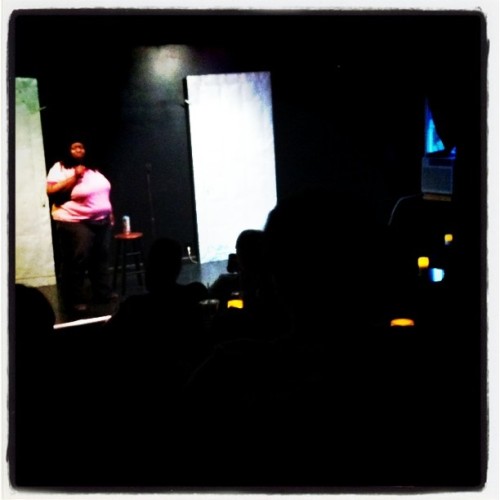
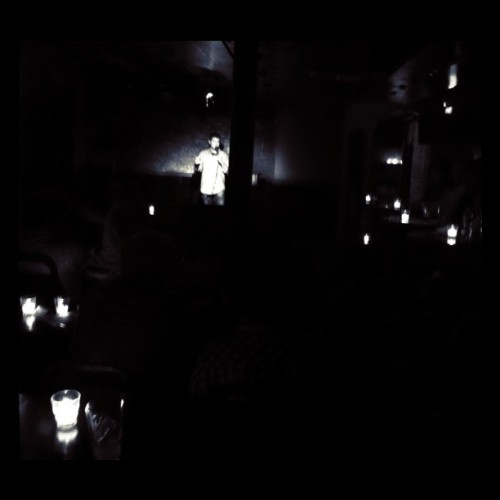
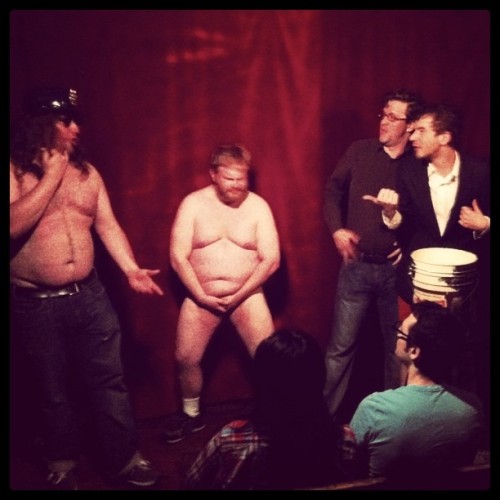

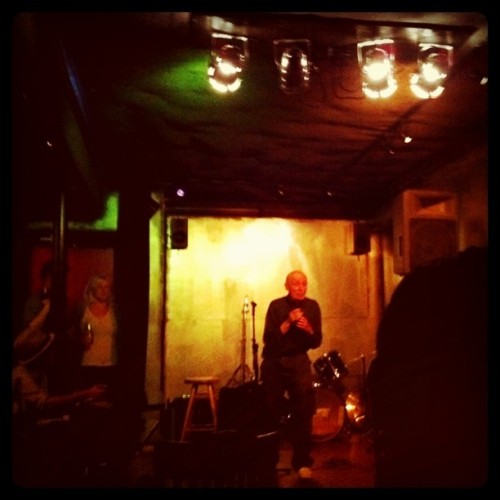
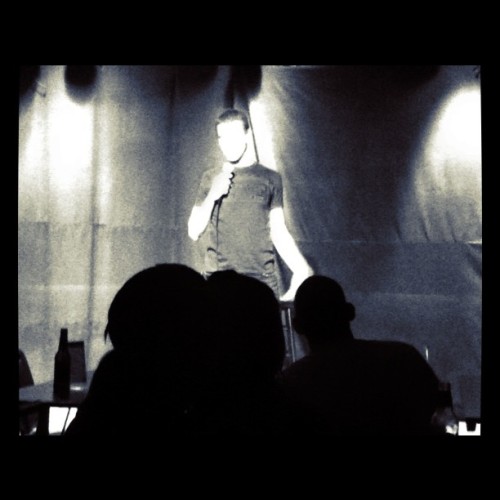

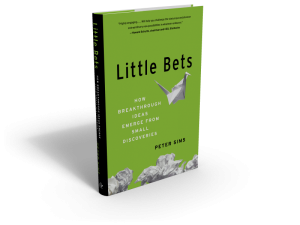 Chris Rock has become one of the most popular comedians in the world and, while there is no doubt he has great talent, his brilliance also comes from his approach to developing his ideas. the routines he rolls out on his global tours are the output of what he has learned from thousands of little bets, nearly all of which fail.
Chris Rock has become one of the most popular comedians in the world and, while there is no doubt he has great talent, his brilliance also comes from his approach to developing his ideas. the routines he rolls out on his global tours are the output of what he has learned from thousands of little bets, nearly all of which fail.